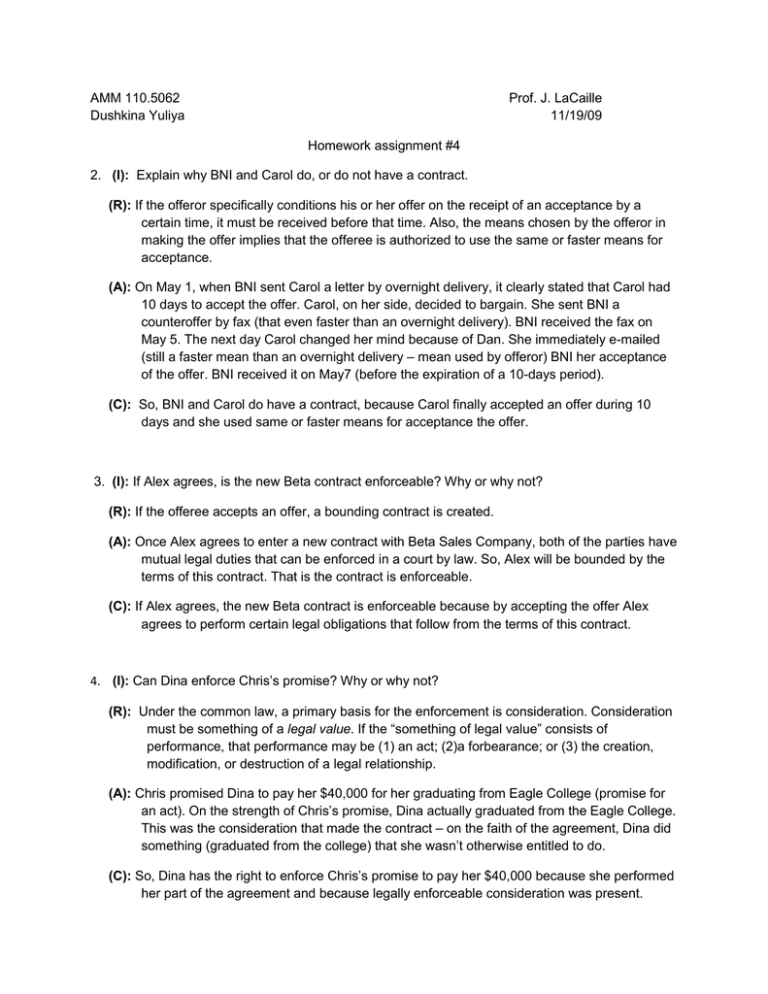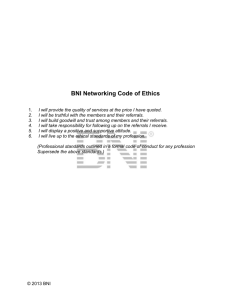Document 17769924
advertisement

AMM 110.5062 Dushkina Yuliya Prof. J. LaCaille 11/19/09 Homework assignment #4 2. (I): Explain why BNI and Carol do, or do not have a contract. (R): If the offeror specifically conditions his or her offer on the receipt of an acceptance by a certain time, it must be received before that time. Also, the means chosen by the offeror in making the offer implies that the offeree is authorized to use the same or faster means for acceptance. (A): On May 1, when BNI sent Carol a letter by overnight delivery, it clearly stated that Carol had 10 days to accept the offer. Carol, on her side, decided to bargain. She sent BNI a counteroffer by fax (that even faster than an overnight delivery). BNI received the fax on May 5. The next day Carol changed her mind because of Dan. She immediately e-mailed (still a faster mean than an overnight delivery – mean used by offeror) BNI her acceptance of the offer. BNI received it on May7 (before the expiration of a 10-days period). (C): So, BNI and Carol do have a contract, because Carol finally accepted an offer during 10 days and she used same or faster means for acceptance the offer. 3. (I): If Alex agrees, is the new Beta contract enforceable? Why or why not? (R): If the offeree accepts an offer, a bounding contract is created. (A): Once Alex agrees to enter a new contract with Beta Sales Company, both of the parties have mutual legal duties that can be enforced in a court by law. So, Alex will be bounded by the terms of this contract. That is the contract is enforceable. (C): If Alex agrees, the new Beta contract is enforceable because by accepting the offer Alex agrees to perform certain legal obligations that follow from the terms of this contract. 4. (I): Can Dina enforce Chris’s promise? Why or why not? (R): Under the common law, a primary basis for the enforcement is consideration. Consideration must be something of a legal value. If the “something of legal value” consists of performance, that performance may be (1) an act; (2)a forbearance; or (3) the creation, modification, or destruction of a legal relationship. (A): Chris promised Dina to pay her $40,000 for her graduating from Eagle College (promise for an act). On the strength of Chris’s promise, Dina actually graduated from the Eagle College. This was the consideration that made the contract – on the faith of the agreement, Dina did something (graduated from the college) that she wasn’t otherwise entitled to do. (C): So, Dina has the right to enforce Chris’s promise to pay her $40,000 because she performed her part of the agreement and because legally enforceable consideration was present.


